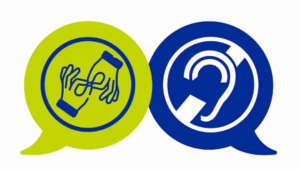School interpreting differs significantly from medical or legal interpreting but is still one of the most common types of assignments. In our last installment of this series, we discussed the most common appointments you’ll likely encounter as an interpreter. Now, let’s talk about what to expect when preparing for and attending a school interpreting assignment.

Preparing for a School Assignment
Let’s start by discussing how best to prepare for a school assignment. We’ve compiled some easy tips to help you feel confident and ready as you approach the session:
- Clarify which Meeting You’ll Attend: Be sure to clarify the nature of the meeting you’re attending so you can properly prepare. Ask your project manager or site contact upon accepting the assignment.
- Ask for Relevant Documents: Ask your project manager or site contact for any documents that may come up during the assignment. These may include evaluation results, school-specific release forms, reports, and background assessments.
- Be Prepared for Sight Translation: School meetings often require sight translation. If you have the relevant documents ahead of time, it’s a good idea to review them before the meeting. This helps you be sure that you are comfortable sight-translating them for the non-English speaker during the session.
- Review vocabulary: Prepare for the meeting by reviewing any specialized vocabulary you might see in the relevant documents.
- Dress professionally: Business casual or professional is appropriate attire for a school assignment.
What to Expect during a School Interpreting Assignment
Excellent! You’re well-prepared and on your way. But what should you expect during the session? School interpreting tends to be less formal than most medical interpreting—and much less formal than legal interpreting. This makes them excellent assignments for interpreters starting their career. It’s helpful to keep the following in mind:
-
The Role of the Interpreter:
School meetings are an especially important place in which to act as a language conduit, not an advocate. You may find it difficult to remain professionally detached when interpreting during a meeting to ensure a student’s success. When interpreting for a school assignment, it’s likely that you’ll need to remind the parties of appropriate interpreter conduct. The collaborative nature of the assignments could prompt the educators or parents to ask for your input. However, it’s critical that you allow the educators and parents to make their own decisions. You must not render an opinion, even if asked. As an interpreter, you must communicate each party’s tone effectively while remaining impartial.
-
Conversational Tone:
Remember that school meetings are, at their heart, team efforts. Everyone has the student’s best interest in mind. As such, educational professionals tend to automatically clarify any specialized vocabulary so everyone’s on the same page. The meetings typically begin with light small talk before continuing to the session objective. The language is typically conversational in tone so that everyone feels comfortable contributing.
-
Being Specific:
Be sure that the language you’re using is the appropriate jargon. Raise and lower the register as necessary to be sure each party’s points are coming across correctly. An example: “evaluation” vs. “testing.” These may seem like synonyms, but in an educational setting they’re quite different. An “evaluation” is a broad, multi-step process designed to help identify a student’s needs. “Testing” may be part of the evaluation process, but it’s much narrower in scope. “Testing” refers to evaluating a specific skill set. In contrast, an “evaluation” refers to combining a variety of data, including tests, to determine the level of necessary support.
-
Working with Kids:
Students are generally involved in school meetings as they’re meant to be collaborative processes. When interpreting for a family, it’s a good idea to create a separate prep-session for younger children. You can give your name and explain that you’re there to help their parents understand what’s happening in the meeting.
-
Multiple Follow-Ups:
Finally, school interpreting sessions frequently have multiple follow-ups, both in-person and telephonically. School interpreting, like individual therapy, is a session type in which clients generally prefer to work with the same interpreter. This continuity of care helps the parents and students feel comfortable and lends extra cohesiveness to the meetings. As such, you’ll likely be called to several assignments with the same set of participants as the student progresses.
Global Arena’s eLearning course: Interpreting in a School Setting
Want to get a head start on your school assignment preparation by learning specialized vocabulary and foundational background? Try our eLearning course, Interpreting in a School setting. The course includes a certificate of training upon successful completion and lifetime access to updates and new information. You’ll also receive our school terminology glossary, complete with spaces to add terms in your target language.




